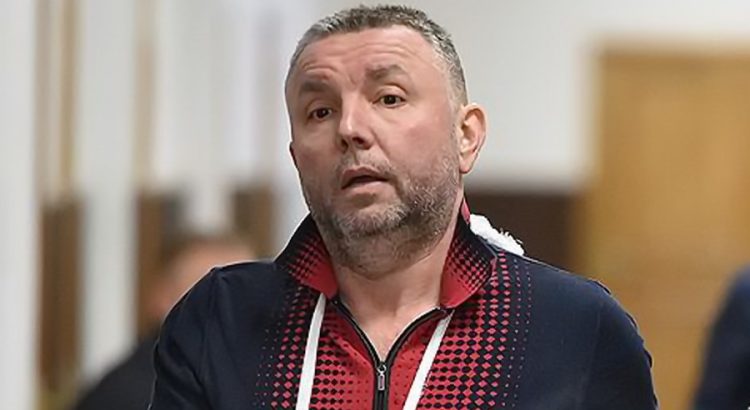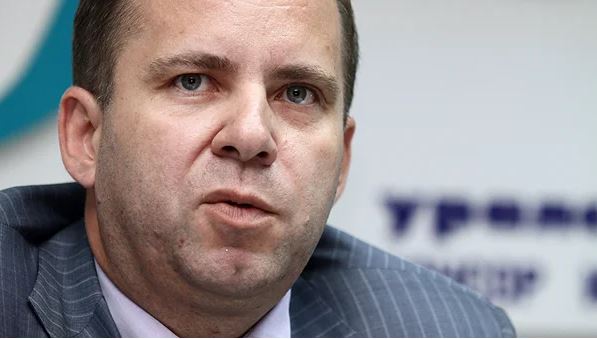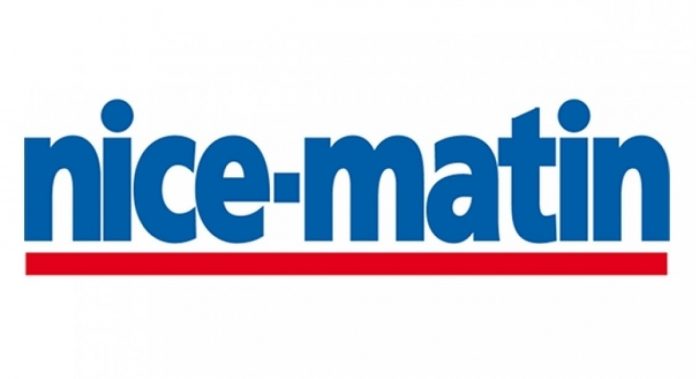PROEKT — ‘Corruption fights’ cycle
THE FEDERAL RESERVE(S)
An enquiry into how the FSB is ‘sheltering’ banks
By Anastasia Stogney and Roman Badanin, with Irina Malkova.
31 July 2019
Compiled jointly with The Bell
1 – How retired FSB officers become bankers
2 – How the FSB works along with ‘cashiers’
3 – ‘Bank-grabbing’ by official authorities
4 – Internal wars between special services
FSB officer Kirill Cherkalin and his former colleagues, who were recently arrested with 12 billion rubles in cash in their possession, were but a small part of a much larger ‘sheltering’ scheme targeting the Russian financial sector [known in Russian as kryshevanie: a form of criminal racket — translator’s note]. According to bankers who fell victim to the above, the scheme involved top managers of the DIA (Deposit Insurance Agency), legal specialists linked to the special services and dubious ‘cashiers’ [‘obnalshchiki’: entities offering to divert companies’ assets and cash them out illegally — translator’s note], who operated on an equal footing with high-ranking FSB officers.
‘We had an appointment at Café Vogue in Moscow. Cherkalin (Kirill Cherkalin, colonel of the FSB — editor’s note) arrived in a chauffeur-driven Range Rover. He wore plain clothes and had a Rolex on his wrist. I remember him paying the bill in full, which is rather unusual for those guys’, recalls Alexander Zhelezniak, former co-owner of the financial group Life. Zhelezniak, along with Life’s other shareholders, has been living abroad for four years now — ever since their banks’ licences have been withdrawn and criminal pursuits have been initiated against the banks’ shareholders and top managers.
The meeting with Cherkalin took place in the summer of 2014. Over lunch, the FSB officer proposed simple collaboration arrangements: Probiznesbank, one of the pillars of the Life Group, would appoint a retired FSB officer as vice-president, who would be paid an annual salary of $120,000 and would enjoy an office, a personal assistant and a company car with driver [information contained in Zhelezniak’s affidavit, which Proekt/The Bell were able to consult]. This was a precondition for a broader agreement to transfer a significant stake in the Life Group to a commercial entity, which would be sharing dividends with senior officials at the FSB and the Procurature.
In 2019, Zhelezniak, who was then in the United States, signed an affidavit to be produced before international courts, in which he described in detail the events around the Life Group [the former shareholders of Life have filed several lawsuits in Europe and the United States against Russian creditors. The editors were able to consult Zhelezniak’s affidavit and the statements of several other managers of the Life Group]. His affidavit as well as the accounts of other bankers have shed some light on how the FSB and other official authorities are ‘sheltering’ banks in Russia.
Excerpt from Alexander Zhelezniak’s affidavit
Mr. Cherkalin, a long-time civil servant, arrived at the meeting in a luxury car with driver, sporting a Rolex watch on his wrist. He confirmed that my letter to the FSB had been countersigned, and said that he was taking the case under his personal control. We then briefly discussed some logistical aspects. PRBB was to pay an annual salary of US$120,000 to the Vice-President of the Bank appointed by the FSB, who would also have a personal office, a company car with driver and a personal assistant.
Rickety-rackety-racket
‘Very bright, very intelligent, knowing the trade to a tee… I would have hired him without hesitation, were it not for all that happened…’ This is how one of the major Russian bankers describes Cherkalin. ‘But all these boys are profit-minded, their generation is like that’, he adds.
When the 38-year-old colonel was arrested in April of this year for corruption and fraud, he had already had made a fine career with the Economic Security Service of the FSB (SEB). When his meeting with Zhelezniak took place, he was already Head of Section ‘K’, which practically had all of the financial sector under its supervision: banks, pension funds, insurance companies.
During the search conducted at the colonel’s home, the police found 12 billion rubles (189.6 million dollars) in cash and valuables [according to another version, the 12 billion rubles were found at the homes of the three suspects]. This is an absolute record for property confiscated from a Russian official accused of corruption.
‘You know the famous principle, don’t you? When you are up against something that you cannot fight, then your best bet is to lead it’, explains an interviewee, who has personally known Cherkalin and many of his colleagues, speaking of the time when the FSB was seeking to establish its dominion over the banking market. This was in the early 2000s, when the ‘cashing-out’ market in Russia was booming.
Section ‘K’ had two modes of informal interaction with banks, according to a source close to the FSB: levying a commission of c. 0.1-0.2% on cashed out funds; collecting fixed bribes and pay offs for specific offences. ‘Cashiers’, i.e. banks that helped to cash out funds illegally, were required to set up a ‘subscription’ with section ‘K’, says a former co-owner of a major bank, whose licence has been withdrawn.
In order to receive its percentage in due course, the FSB would ‘out-post’ its man to the ‘shelter’: usually a retired FSB officer, who was most often appointed head of the bank’s economic security department. The ‘seconded’ officer was thus able to control all the financial flows, while ‘keeping it in the family’. He was furthermore usually responsible for collecting up-to-date information on the market [according to the same contact person].
The system was not closed: it would have been impossible to control the entire banking sector on one’s own. To control the ‘cashing-out’ market it was necessary to find cash, explains a source close to the FSB. To do this, Section ‘K’ had to collaborate with the regional sections of the FSB. In the regions, particularly in southern Russia, where the ‘grey’ market is quite large, it has always been cheaper and easier to obtain cash, according to the same source. ‘Let’s say a Moscow bank has a network of remote regional subsidiaries; the latter are responsible for accumulating cash and transferring it to the head office. The head office has access to bigger customers, to whom it sells that cash; part of the profit is then shared with the regional subsidiaries, since they have few customers of this calibre in the regions’, says our interviewee.
The transport of cash within Moscow was carried out thanks to the FSB’s special sections ‘Alpha’ and ‘Vympel’, whose members took on their working hours to give a hand. ‘They would take sick leave, and the transport vehicle was allegedly sent for technical revision’ [as indicated by a source close to the FSB, describing the logistics of the scheme]. Of course, it was also necessary to find an agreement with the FSB’s Internal Oversight Service, which was well aware of the business their colleagues were running.
What could it have to do with Navalny?
In May 2019 members of civil society came to visit colonel Cherkalin in his cell in Lefortovo prison, where he was held in pre-trial detention. The colonel, who greeted the visitors dressed in a Givenchy tracksuit, had meanwhile transformed his prison cell into a ‘monastic cell’, having covered every wall with icons [according to Kommersant magazine].
The FSB’s Economic Security Service (SEB)
SEB is one of the most influential services within the FSB. It is behind almost all the high-profile cases of recent years, from the arrest of Aleksei Uliukaev and of the Magomedov brothers to the ‘Argentine cocaine’ case. And the position of Head of SEB has been an outstanding career springboard for many.
Successive directors of the SEB
1998 Alexander Grigoriev
Member of the KGB section for the city of Leningrad since 1975. He served there alongside Vladimir Putin, with whom he was good friends, according to the media. Died in 2008.
1998 Nikolai Patrushev
Head of the Ministry of Security of Karelia (where Zaostrovtsev used to work). Head of the FSB from 1999 to 2008. Currently Secretary of the Security Council of the Russian Federation.
1999 Viktor Ivanov
Member of the KGB section for the city of Leningrad since the 1970s. In the mid-1990s, Head of the Directorate of Administrative Bodies at Saint-Petersburg’s Mayor’s Office (Putin was then deputy to the Mayor of Saint-Petersburg, A. Sobchak). Headed the FSKN (Anti-Narcotics Service) until 2016.
2000 Yury Zaostrovtsev
Graduate of the KGB School of Leningrad. Worked at the Ministry of Security of Karelia in the early 1990s (which was headed at that time by Patrushev). Acquainted with Putin (cf. Kommersant), who at the time when Zaostrovtsev worked in Karelia was head of the external relations committee at the Saint-Petersburg’s Mayor’s Office.
2004 Alexander Bortnikov
Director in office of the FSB since 2008.
2008 Yury Yakovlev
Left SEB almost at the same time as Voronin (RBK). Currently Vice-President of Rosatom in charge of security.
2016 Sergei Korolev
Acting Director of SEB. Lobbied to have Tkachev appointed [according to data from the Investigation Management Centre (TsUR)].
Section ‘K’
One of the main sections of SEB. In charge of supervising banks, insurance companies and pension funds.
Up to 2016
Viktor Voronin
Resigned when one of his subordinates became involved in a case of smuggling. Included in the ‘Magnitsky Act’. Gave the green light to launch criminal proceedings against Hermitage Capital. In 2019 was appointed Deputy Director General in charge of the Interaction with State Bodies at a contractor of Rosatom’s.
As of 2016
Ivan Tkachev
Acting Head of Section ‘K’. Did his military service in the border guards in Karelia, together with Oleg Feoktistov, former deputy director of the Internal Oversight Service of the FSB [according to data from TsUR]. Before being appointed to Section ‘K’, he headed the 6th Office of the FSB Internal Oversight Service, known as ‘Sechin’s commandos’ [nickname given by the TSUR and Proekt/The Bell interviewees]. He personally issued the order to have Uliukaev’s vehicle intercepted.
Banking department
Part of Section ‘K’
Up to 2013
Dmitry Frolov
The newspaper Novaia Gazeta discovered that his family owns an undeclared house as well as four plots of land in Italy. Shortly before the article went to press Frolov was discharged for ‘loss of confidence’.
As of 2016
Kirill Cherkalin
Succeeded Frolov. ‘Cherkalin was, effectively, raised by Frolov’ [according to an interviewee of Proekt/The Bell]. Arrested in spring 2019.
Until then, Cherkalin did not give the impression of being a particularly religious man to those who met him. On the few photos to be found on Telegram channels, he looks more like a bon viveur, posing in European resorts, dressed in well-cut clothes and carrying bags from expensive shops. ‘He knew how to be affable, but he was the type of person with whom you would immediately want to cut off any connection’, Zhelezniak recalls today. When former co-owners of the Life group and childhood friends Alexander Zhelezniak and Sergei Leontiev met Cherkalin, the result was very bad indeed. After the meeting at Café Vogue in 2014, the partners agreed to a ‘secondment’ to their Probiznesbank. Zhelezniak himself sent a letter to that end to Viktor Voronin, who at the time was head of Section ‘K’. According to Zhelezniak, he did so upon the advice of one Kamo Avagumian, co-owner of the Avilon car dealership, a VIP client of the bank and a long-standing acquaintance of Zhelezniak’s [the editors have sent an information request to Avilon, which has remained unanswered so far]. The said letter, so Zhelezniak claims, was countersigned by Voronin [Proekt/The Bell sent a request for information to the postal address of Fizpribor, where Voronin is currently employed, having left the Service in 2016. We have not received any answer so far]. But the owners of Life refused to give away stock.
Zhelezniak claims that at the time when these events occurred the group’s banks were financially stable, even though in 2014 the Life Group incurred losses of several billion rubles. Probiznesbank’s figures for arrears on loans issued to natural and legal persons were very much above the national average [according to Vedomsti]. Towards the end of the year, the rating agency Finch cancelled Probiznesbank’s ratings. At the time Finch’s concerns were primarily related to the securities portfolio in which Probiznesbank had invested 47 billion rubles, that is nearly half of its total assets; the majority of these securities were deposited in Cypriot depositories. The crisis meant that the other banks were selling frantically to stay liquid, while Probiznesbank‘s portfolio was the only one to remain stalled [recalls Fitch analyst Alexander Danilov]. This also raised some questions at the Central Bank.
In September 2014 the banking regulator withdrew the licence of Bank24.ru, which belonged to the owners of the Life Group. The following year, it withdrew the licence of Probiznesbank itself. Bank24.ru allegedly lost its license for violating laws on money laundering, although at the time of the withdrawal the bank’s assets were 2 billion rubles in excess of its liabilities. According to Zhelezniak, the bank had no money-laundering activity; the regulator held it responsible because of ‘a mere five banking transactions, of which the bank failed to notify the Central Bank in due time’. According to the information provided by the regulator, Probiznesbank invested funds in ‘low quality assets’ and ‘lost all its capital’; furthermore the subsequently appointed bankruptcy managers claimed to have uncovered large-scale transactions showing signs of misappropriation. The regulator ultimately estimated that the ‘hole’ in Probiznesbank‘s accounts amounted to nearly 35 billion rubles. ‘Today’s Russia is not yet ready for a group like Life’, Leontiev wrote in the company’s internal blog. ‘It seems that the time has not yet come for companies like Life in this country. This is why for the next fifty years I am going to build a Life elsewhere on the globe.’ Neither he nor Zhelezniak have ever returned to Russia since.
In his testimony, Zhelezniak claims that their banking business withered away for political reasons. In 2012 Life’s directors invited Alexei Navalny to a strategy session designed for managers. At that time Bank24.ru, which belonged to the group, proposed to support the opposition leader by secretly launching the ‘Navalny credit card’, whereby 1% of the amount of each purchase made with the card was donated to Navalny’s Anti-Corruption Fund. [Navalny’s spokesperson Kira Iarmych indicated that this idea had indeed been discussed with the FBK Fund, but has never been put into practice and no transfers have ever taken place.] The promotional action did not remain secret for very long: as soon as the media heard of it, Alexei Pliakin, former head of department at the Central Bank, warned Zhelezniak that such kind of collaboration would raise ‘numerous questions’ at the Central Bank and at the Procurature [so Zhelezniak claimed in his testimony; the Central Bank’s press service did not wish to comment on this episode]. The idea of supporting Navalny had to be abandoned, but ‘the Kremlin did not forget the incident’ [so Zhelezniak said in his testimony].
The banks’ licences were thus withdrawn, but Leontiev’s and Zhelezniak’s problems were just beginning.
The FSB and the ‘cashing out’ activity
The system which the Life group allegedly fell victim to, had obviously taken years to take root. Banks had to live with it, particularly those that were making money on ‘cashing out’ activities [according to Proekt/The Bell’s contacts in the financial sector].
For Mikhail Zavertiaev, former chairman of the board of Intelfinans bank, which perished in 2008, interaction with Section ‘K’ began with a meeting with Evgueny Dvoskin. Dvoskin, one of Russia’s most odious bankers, had once been designated by Bloomberg as ‘one of the key figures in the “cashing out” business’, with alleged links to the FSB and the mafia.
In early December 2007 two individuals entered Zavertiaev’s office; oddly enough, they had arrived at the bank’s headquarters in an ambulance. The first of the two was Dvoskin, the second was his bodyguard. ‘Walked in with a maffioso gait, then said: “So, which one here doesn’t know how to talk to people politely? That one?”’, this is how Zavertiaev remembers Dvoskin’s sidekick. The day before their visit, the banker reports having caught his chief accountant in a blatant attempt to grant a loan to a shell company, supposedly affiliated with Dvoskin.
‘Dvoskin came up to me and slapped me. I gave him an elbow strike. He collapsed. The only thought that crossed my mind at the moment was: he fell next to my briefcase, which contained important documents; he will take them and run away. I leaned over to move the case, but I was hit with a pistol’s butt and lost consciousness’, this was Zavertiaev’s version of the events.
According to Zavertiaev’s estimate, nearly 11.7 billion rubles were withdrawn from the bank in the course of the following two months (out of which 10 million were finally charged to Intelfinans’ chief accountant, who was sentenced to three years’ suspended imprisonment). During the same period, unknown persons set fire to the car belonging to Zavertiaev’s wife. The banker was forced to transfer his family to his country house and hire bodyguards to protect them [according to him].
Zavertiaev claims that the funds were misappropriated by means of a forged signature, although he had personally, while in hospital, ‘informed the Central Bank that the bank was being robbed, and requested a licence suspension in order to prevent acts of fraud’. But the regulator did not want to accede to his request: ‘Central Bank Vice-President Guennady Melikian explained that they had never been confronted with such requests and did not know how to act in these circumstances’ [said Zavertiaev]. Melikian then told the newspaper Vedomosti that ‘in the case of Intelfinans the reaction was actually very prompt, especially given that everyone was on holiday until 10 January’. When the licence was withdrawn, the Central Bank stated that the bank’s managers and employees had ‘effectively put an end to the bank’s activities, which resulted in a situation likely to harm the interests of the bank’s creditors and depositors’.
About six months after the incident Zavertiaev had a meeting with two members of Section ‘K’: Frolov and Cherkalin. Moreover, the former banker claims that the FSB’s first deputy head, Sergei Smirnov, was also present.
The meeting took place at the restaurant Palazzo Ducale on Tverskoi Boulevard. ‘What will you have? Maybe a small salad? Only water? Come, at least have a small salad!’ — the people on the other end were wonderfully considerate, recalls Zavertiaev. According to him, the interview had two objectives: to understand whether he had any evidence of Dvoskin’s visit, and if so, what kind of evidence; and, on the other hand, to convince him to renounce any attempt to recover the embezzled money. It seemed to him that the FSB officials knew Dvoskin very well. ‘Come on, stop worrying! We have already thrown him out’, Smirnov would say trying to reassure Zavertiaev and speaking of Dvoskin’s bodyguard. At the end of the interview, the FSB people allegedly offered the banker monetary compensation for ownership of his business.
Zavertiaev recounts having launched legal proceedings against everyone, and especially against Dvoskin, with the relentless determination of a desperate man. But in the end, he did not win a single case. Dvoskin was able to prove that he could not have assaulted Zavertiaev, because he was at that time testifying in another criminal case, in which he was a claimant. His statements were confirmed by investigators and by the call logs from his mobile phone. In answering questions from Proekt and The Bell, Dvoskin said that Zavertiaev had made it all up, that the alleged episode with the fight never took place, and that they first met during the judicial confrontation.
Dvoskin was under FSB protection, said two sources close to two distinct public authorities. In the interview with Proekt and The Bell Dvoskin reminded that he was wanted abroad [Dvoskin’s bank is known to have fallen under foreign sanctions because of its presence in the Crimea]; when asked if he did indeed enjoy FSB protection, hung up the phone. ‘The Service has always kept “cashiers” on hand; it turned them into informants, to avoid having to put them in prison’, explained one of our interviewees. Among the ‘cashiers’ he mentioned the former co-owner of Kreditimpeksbank Alexei Kulikov, who was sentenced several years ago to nine years’ imprisonment for fraud. At first glance, Kreditimpeksbank made a poor impression: a half-empty main room, about twenty poorly furnished offices and a grim-looking guard. But in the mid-2000s, this bank held a significant share of the ‘cashing out’ market, according to an interviewee close to the FSB. As in many other banks, the security department was headed by a retiree of Section ‘K’. His commission was 0.2-3% on all transactions carried out by the bank. Several times the Central Bank had expressed concerns about Kreditimpeksbank, but the FSB’s banking department had managed to resolve the issue [according to a Proekt/TheBell interviewee]. At the moment when the bank’s licence was withdrawn, missing funds were estimated at 229 million rubles; nearly two million rubles were found at Kulikov’s home.
It would seem that the supposed covert activities of the FSB’s banking department were not limited to controlling the ‘cashing out’ market. Cherkalin was in close contact with the managers of almost all major banks in Russia. Aleksei Khotin, the former owner of the recently bankrupt Ugra Bank [according to RosBiznesKonsalting, Khotin was placed under house arrest in the case concerning the misappropriation of Ugra funds], testified in court that for three years he had been paying a commission to Cherkalin in exchange for his protection [this information was published by RosBiznesKonsalting, but Khotine’s defense counsel denies it and affirms they have filed a complaint against RosBiznesKonsalting].
The protection of the FSB, as shown by the example of Ugra, was in no way a guarantee of the bank’s continued survival. Especially if one considers that for the members of Section ‘K’ the bankruptcy of a bank was just another opportunity to make money.
A case of dough or DIA (Deposit Insurance Agency)
‘$350 million is not such a high price to pay for your own life and that of your loved ones’, this was the proposal made to former Mezhprombank owner Sergei Pugachev in 2011 by subordinates of the DIA’s former Deputy Director Valery Miroshnikov. [This is what Sergei Pugachev himself told us. Sergei Pugachev’s lawyers have been telling this story before various courts since 2014, when the DIA began hunting down the former banker’s assets. Miroshnikov has already responded to these complaints, including in court, where he refuted all of Pugachev’s accusations and stated that Pugachev had himself threatened him with death via third persons].
The DIA deals with banks that have already gone bankrupt: the agency’s primary role is to collect the funds that have got ‘stuck’ in these banks. However, in order to do this, it is necessary to draw from the State’s pocket. The DIA came into existence in 2004. In fifteen years of liquidating and restructuring Russian banks, $500 billion have somehow left the banking system [information published by The Republic based on the Russian balance of payments]; furthermore the Agency itself received an additional 1 trillion rubles (nearly $16 billion) [according to the DIA’s own data] for the purpose of restructuring failed banks. Such amounts leave quite some room for manoeuvring…
The testimonies of Zhelezniak and of another banker show that Miroshnikov knew Cherkalin well. Zhelezniak remembers a meeting at which both were present. Without any embarrassment, the two officials discussed in front of their interlocutor ‘which bankruptcy manager they were going to appoint to which bankrupt bank’.
Miroshnikov was called as a witness in the Cherkalin case: this decision was taken by the investigator after examining the telephone correspondence between the two men [according to RosBiznesKonsalting]. But immediately after Cherkalin’s arrest, Miroshnikov left Russia never to return (according to his entourage, he first went to Australia, then to Germany ‘to receive medical treatment’). Two months later, the Agency announced his resignation, without giving any reasons.
Pugachev, for his part, even wrote a letter to Vladimir Putin to complain of DIA officials who allegedly tried to extort $350 million from him. In return for that money, Miroshnikov’s representatives offered their services to preserve a part of Pugachev’s assets not linked to Mezhprombank, but pledged as collateral. According to Pugachev, Cherkalin’s men were acting in tandem with those of the DIA. The proposed agreement was extremely simple. ‘Back then, following the bankruptcy of Mezhprombank, a criminal investigation was opened against X, and I was clearly told that this circle of “unidentified” people could quickly become “identified” and that I could easily become one of them’, says Pugachev. The FSB men reportedly asked for $20 million to prevent this from happening. Pugachev says he refused to pay.
Pugachev certainly has at least one reason to hold a grudge against the Agency and, possibly, to slander it: after he left Russia, the DIA managed to obtain a freezing order against his assets for nearly $2 billion. But Zhelezniak’s testimony, too, provides very similar details on the collaboration between Cherkalin and Miroshnikov.
In 2016 Probiznesbank lost its license and its owners left Russia. Soon after Zhelezniak was reportedly contacted by Miroshnikov, who suggested that he should get in touch with a certain Artem Zuev [Zhelezniak showed the editors the corresponding SMS sent from Miroshnikov’s number]. Miroshnikov described Zuev as a partner in Quorum Group, but Zhelezniak told the court in his statement that Zuev was ‘a well-known corporate raider’. The other Quorum partner [according to SPARK registry data] is the lawyer Andrei Pavlov, made famous by the part he played in Sergei Magnitsky’s case, as a result of which he fell under US sanctions. Pavlov, according to Novaia Gazeta’s publications, was closely linked to some members of law enforcement agencies.
The meeting with Zuev was scheduled to take place at Zurich airport in Switzerland. Zuev insisted that the interview be conducted face-to-face and Zhelezniak’s lawyer had to wait at a distance. Zuev informed Zhelezniak that he had a mandate to act on behalf of Quorum, which had been appointed bankruptcy manager of Probiznesbank. According to Zuev, his mandate had received the approval of Miroshnikov and Cherkalin. Their emissary therefore proposed a deal: Leontiev and Zhelezniak would make a complete list of their assets, return to Moscow and cooperate with the Russian authorities. They would be sentenced to three to four years’ house arrest, after which they would be paid a compensation from the mass of recovered assets, of which Quorum was going, of course, to have its share. Zuev promised that if they did not comply, Zhelezniak and Leontiev would be ‘persecuted globally’. ‘You will not have a minute of peace, imagine the kind life it will be!’, he is alleged to have said. After this meeting in Zurich, Zhelezniak phoned Miroshnikov and asked him what the purpose of that meeting had been. ‘We want to help you’ Miroshnikov answered [from Zhelezniak’s affidavit].
The owners of Life rejected this ‘help’; Quorum is still tracking their assets around the world. Recently, the former managers of Probiznesbank were sentenced to real prison terms: from three to seven years’ imprisonment [according to Kommersant]. It was Miroshnikov himself who sent Voronin a request to initiate criminal proceedings against Life [Proekt/TheBell are in possession of this document].
Struggles within the species
The amounts for which Cherkalin and his fellow FSB men were sentenced to prison are out of proportion with the scale of their activities and with the 12 billion in cash found at their homes. Cherkalin was charged with receiving a bribe of 50 million rubles; the other two men under investigation were accused of seizing assets belonging to Sergei Gliadelkin, a prominent Moscow promoter, for a total amount of 499 million rubles.
The man in question is not widely known, but he has been for a long time one of the major players on the very select real estate development market in Moscow. The newspaper Ekspress-Gazeta, where his photos pop up from time to time, thanks to his wife Evgenia Kriukova, an actress of the Mossovet, describes him as ‘a workaholic, who has made millions sweating his brow’. Before 2005, Gliadelkin was head of the state-owned company Moskva-Tsentr, where he was in charge of supervising the construction in Moscow’s city centre; among other things, he was responsible for distributing land in the Ostozhenka district, located within the famous golden triangle, where the price per square meter reaches unrivalled levels.
Cherkalin’s arrest is not the first case due to Gliadelkin. In 2010 a criminal investigation was launched at his request against Moscow’s Deputy Mayor Alexander Riabinin. When the lawyer defending Riabinin — whose client had just been sentenced to three-years’ suspended imprisonment — asked Gliadelkin at the hearing how long he had been working for the FSB and whether he had received official recognition for his work, Gliadelkin replied: ‘I will not answer these questions because I have signed a non-disclosure agreement’.
In addition to real estate development, Gliadelkin has some profitable activity in other areas. In 2017, the telephone number of Avenue Group, one of Gliadelkin’s companies, could be seen on the ‘golden’ public paying toilets, installed throughout the capital to replace the old blue cabins, which were judged obsolete and ‘outdated’. Gliadelkin is also said to have carried out joint projects with Igor Chaika, the son of the Prosecutor General of the Russian Federation, Yuri Chaika. [In 2013, Chaika and Gliadelkin registered a company called Tekhno-R-Region, whose proposed activities involved waste collection and treatment. Chaika declared in 2017 that he has never taken part in any waste treatment activities, and after the investigation conducted by the Anti-Corruption Fund, Chaika’s holdings sold their shares in Tekhno-R-Region to Gliadelkin’s managers. Nevertheless, Chaika subsequently acquired a stake in one of the largest companies in the waste recycling sector, Khartia. One of the waste treatment plants had been previously run by the owner of the company that won the tender for installing the infamous ‘golden’ toilets.]
Chaika Sr. is also mentioned in Zhelezniak’s affidavit. According to the banker, the share of Life‘s capital they tried to obtain from him was intended for the ‘two birdies’, who in exchange would have been able to halt the proceedings initiated against the group’s shareholders. The ‘two birdies’ was a way to refer to Prosecutor General Chaika, on the one hand, and to the Head of the FSB’s economic security service Voronin, on the other hand [according to Zhelezniak] (‘Chaika’ means ‘seagull’ in Russian and ‘Voronin’ is a name derived from ‘crow’ — translator’s note). The Procurator General’s Office did not wish to comment or answer Proekt/The Bell’s questions.
Voronin’s former position as Head of Section ‘K’ is now held by General Ivan Tkachev, famous for his role in investigating most of the major corruption cases of recent times. He already had Cherkalin in his sights when he was still with the FSB Internal Oversight Service [according to RBK]. The media reported that Tkachev and his supervisor Sergei Korolev, the current Head of SEB, were in conflict with the men of Voronin and his friend Smirnov, deputy head of the FSB — that very same man who, according to banker Zavertiaev, attended the interview at the Palazzo Ducale restaurant. [The conflict between the two groups within the FSB had been described, among others, by Open Media.]
It is a struggle within the species’, laconically concluded an entrepreneur enjoying a good relationship with law enforcement authorities. A perception corroborated by a leading Russian banker who knew the arrested officers well.
In just over two years’ time the current head of the FSB Alexander Bortnikov will celebrate his 70th birthday, reaching the age limit for his position. It means that the clan that will take the upper hand in the fight for Bortnikov’s chair ‘will have it all under control’[says a leading Russian banker, who knew Frolov and Cherkalin well].
Miroshnikov is ‘a very rich person’ according to his entourage. We reviewed his real estate assets — only the properties he owns in Russia. Miroshnikov’s son Maxim, barely 22 years old, owns a 400m2 house and a plot of land in the village of Fominskoe, not far from Troitsk. According to official documents, it was a gift from Valery Miroshnikov’s mother, Tatiana Miroshnikova. Mrs. Miroshnikova is 68 years old and has never had any economic activity (according to the SPARK register), which does not prevent her from owning three apartments in the centre of Moscow: two in the Imperskii Dom residence in Yakimanka Street, with a total surface area of over 500m2, and one 200m2 apartment in the Ostozhenka Park Palace residence. Miroshnikov himself owns a luxury apartment on the 6th floor of the La Defence residence in the Khamovniki district. The whole could be worth more than a billion rubles.











